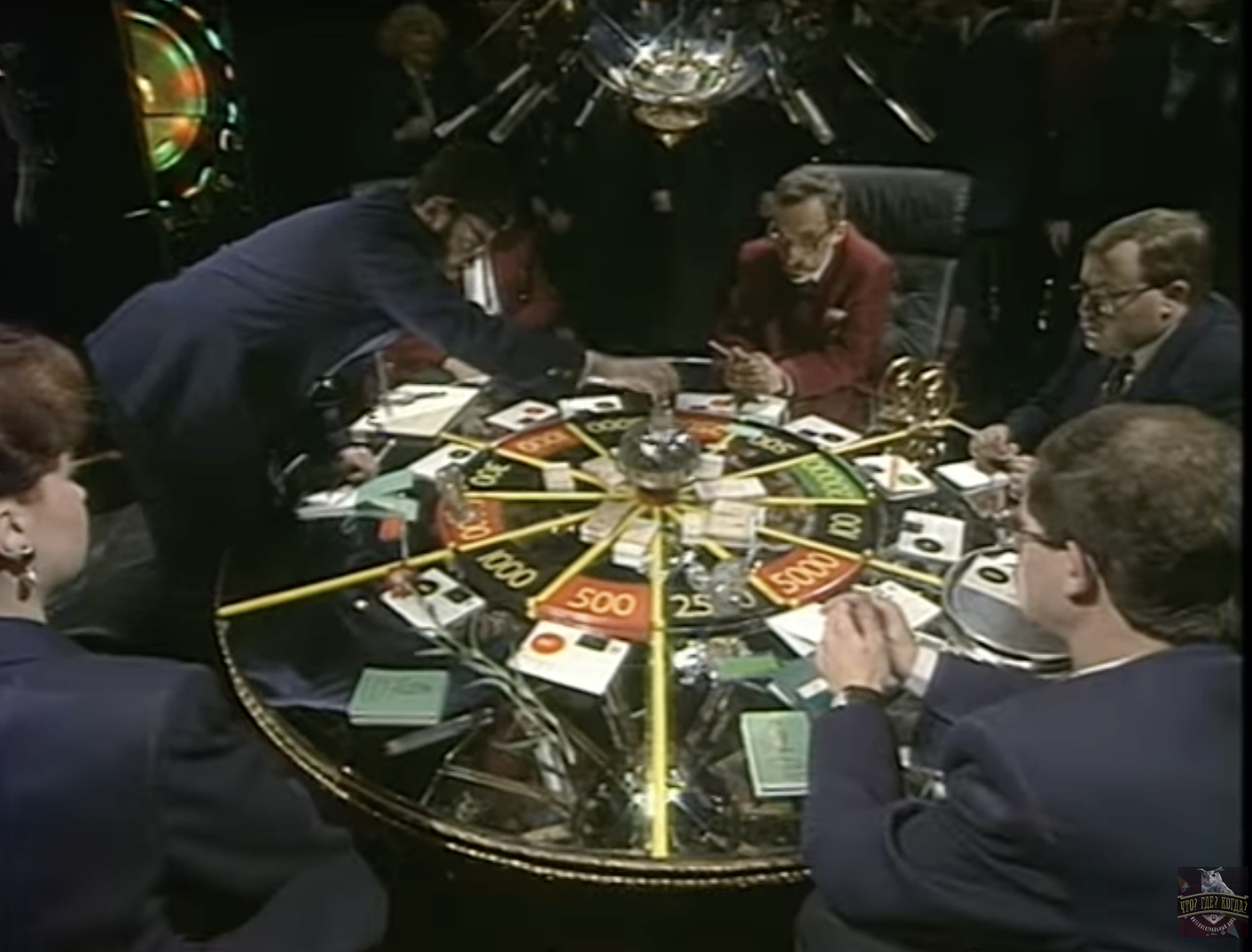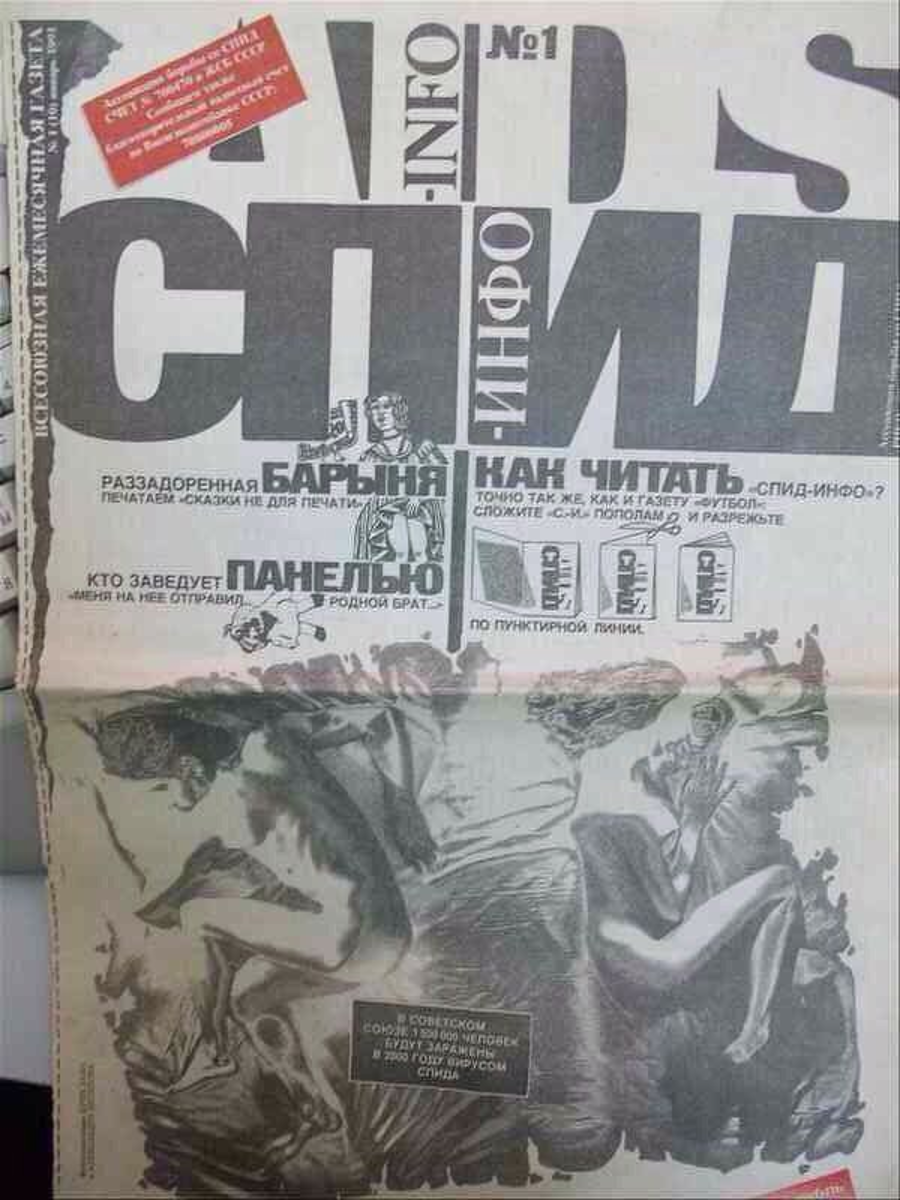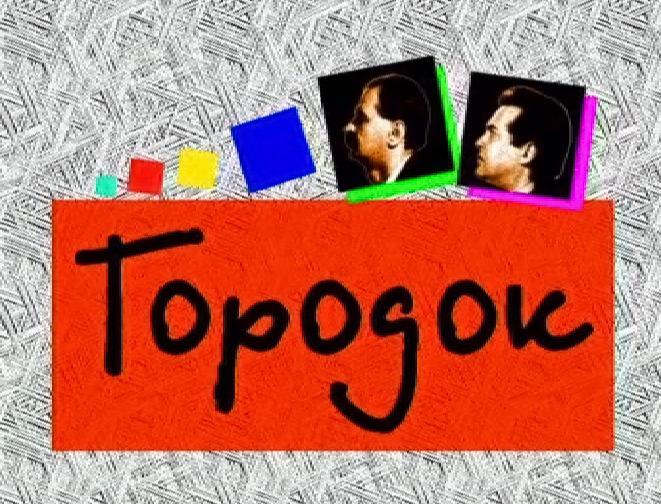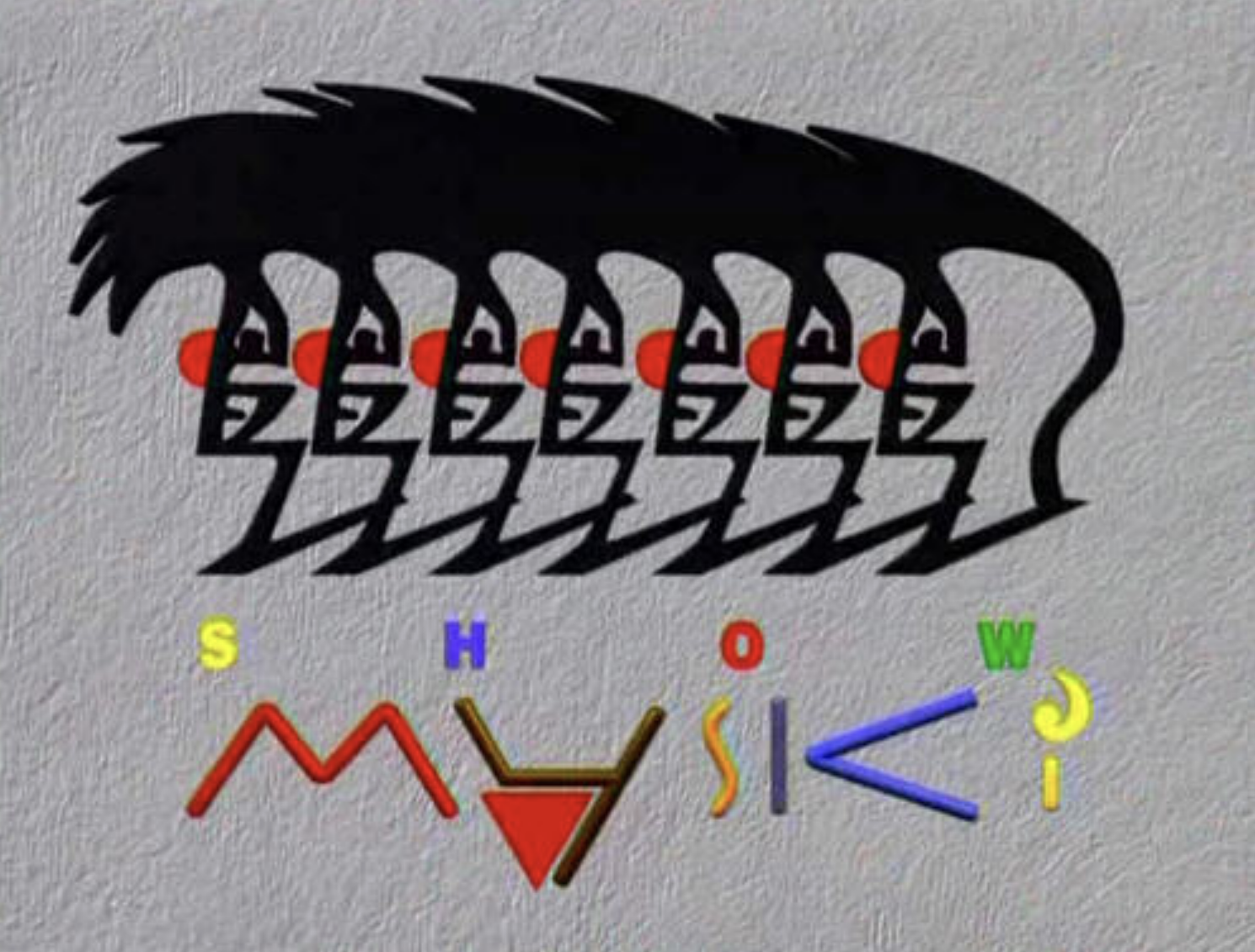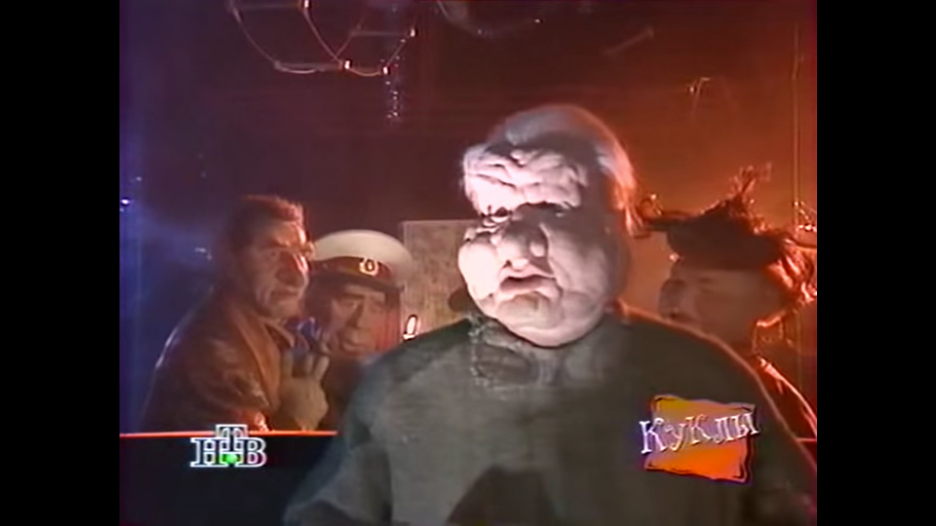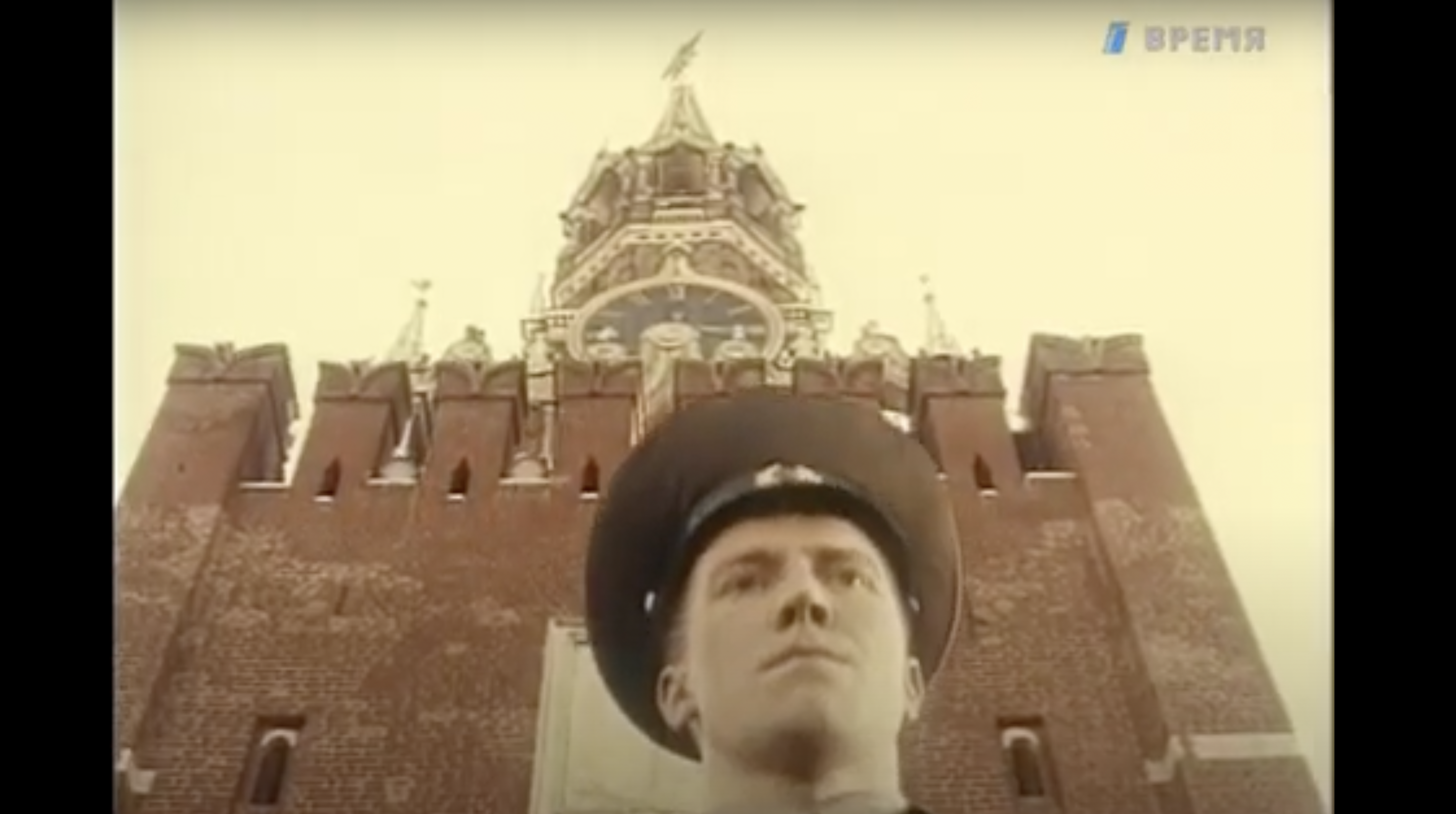The Raspberry Blazer
The origins and significance of the raspberry blazer as an iconic element of the “New-Russian” wardrobe in the early 1990s.
SpidInfo #1, January 1991
The cover of the first issue of the early 1990s magazine SpidInfo, with an anxious nude couple turned away from one another in bed.
Gorodok (Little Town): 1993-2012
The1996 title screen of "Little Town [Gorodok]," a hit sketch comedy show created by Yuri Stoyanov and Ilya Oleinikov.
Georgii Deliev, "Mask Show [Maski Show]," 1991-2006.
A 1991 title screen for the sketch comedy program Maski-Show (Mask Show, 1991-2006) showing a stylized image of multiple people in clown make-up.
Boris Yeltsin’s first appearance on “Kukly [Puppets]” in 1995
In 1995, the Boris Yeltsin puppet made its debut on the influential political satire show Kukly (Dolls or Puppets), which ran from 1994-2002 on NTV.
Ernst’s “Russian Project” as cultural therapy for the post-Soviet Russian masses
Konstantin Ernst’s (1961-) series of social advertisements extolling Russia’s shared values and national identity at a time of seeming social crisis in the mid-1990s.
